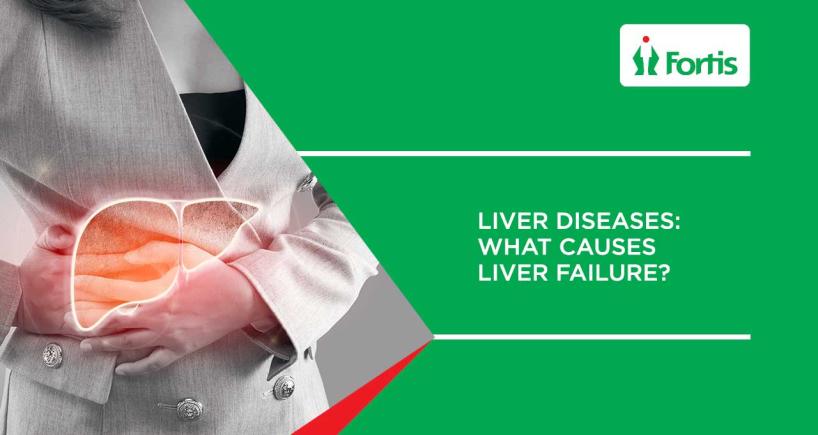
Liver diseases: What causes liver failure?
The liver is one of the most important organs working around the clock to keep you healthy and alive. It performs more than 500 tasks, including detoxification, protein synthesis and the production of bile that helps in the digestion of fats. Yet, several factors, including health problems, can cause serious liver diseases and lead to liver failure, a life-threatening condition that warrants immediate medical attention.
With is cutting-edge technology and world-class facilities, Fortis Hospital, Mulund, is well-known for offering the best treatment for all stages of liver diseases. If you’re concerned about your liver health, read on as our doctors list the general symptoms of common liver diseases and how different conditions can cause liver failure.
Signs and symptoms of liver disease
While liver disease doesn’t always cause noticeable symptoms, the following signs may indicate some kind of liver issue. Also, symptoms may vary depending on the underlying cause.
- Jaundice (yellow skin and eyes)
- Dark urine
- Nausea
- Vomiting
- Pale or black stools
- Appetite loss
- Chronic fatigue
- Itchy skin
- Easy bruising
- Swollen legs
- Seek medical care if you have any of these symptoms or persistent signs that worry you.
Causes of liver failure
The cause of liver failure depends on the type of liver failure - acute or chronic.
Acute liver failure occurs rapidly (in days or weeks), whereas chronic liver failure develops gradually over time.
Acute liver failure can be caused by many different things, although the exact cause may be unknown in some cases. Possible causes are:
- Viral infections - like hepatitis A, B or E
- Reactions to prescription medications such as antibiotics, antidepressants, anti-seizure medications
- Reactions to few herbal medications and supplements
- Overuse of certain drugs like acetaminophen (Tylenol)
- Autoimmune conditions like autoimmune hepatitis
- Metabolic disorders such as Wilson’s disease
Chronic liver failure often results from cirrhosis (severe scarring of the liver), making it hard or impossible for your liver to function. Cirrhosis is caused by many forms of liver diseases and conditions such as alcohol-related liver diseases, non-alcoholic fatty liver disease (NAFLD), chronic hepatitis B or C infection, diseases that affect your bile ducts like biliary stricture, biliary atresia etc.
Generally, liver failure occurs after cirrhosis, which often has no signs or symptoms during initial phase and the liver is too damaged to continue working. So, it’s a gradual process in most cases.
Treatment and prevention of liver failure
The main goal of treatment is to address the root cause of liver damage Treatment options for liver failure are medication, supportive care, and liver transplant. In people with cirrhosis or end stage liver disease, a liver transplant is often required. Lifestyle modifications are often recommended as part of treatment.
You can reduce your risk of liver failure by taking simple steps such as:
- Eating a healthy diet rich in fruits and vegetables while cutting back on fatty foods.
- Maintaining a healthy weight.
- Avoiding alcohol consumption.
- Getting vaccinated against hepatitis A and B.
- Following directions when using medications.
- Practicing good personal hygiene.
- Having regular physical examinations with your doctor.

















